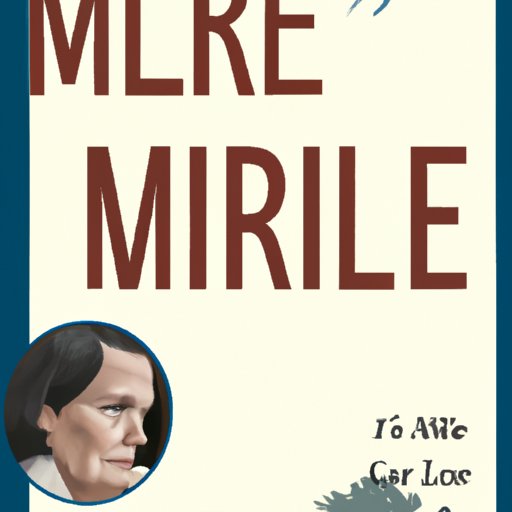Introduction
Harper Lee’s Pulitzer Prize-winning novel “To Kill a Mockingbird” is one of the most beloved books in American literature. Since its publication in 1960, it has been translated into more than 40 languages and sold over 40 million copies worldwide. It has been adapted into a successful Broadway show, a feature film, and numerous other media. Its powerful story and memorable characters have resonated with readers for generations, making it an enduring classic.
Themes and Characters
At its core, “To Kill a Mockingbird” is a tale of justice, morality, and courage in the face of adversity. Through the eyes of Scout Finch, the reader is introduced to the small town of Maycomb, Alabama and its residents. The story focuses on racial prejudice, class divisions, and the struggle for equality in the 1930s Deep South. Scout and her brother Jem learn important lessons about life, justice, and courage from their father Atticus, who defends an African-American man accused of a crime he did not commit.
The novel is filled with complex characters, each of whom bring a unique perspective to the narrative. Atticus Finch is the moral center of the novel, embodying the values of fairness and justice. He is a single father raising his two children, Scout and Jem, with wisdom and patience. Calpurnia is the Finch’s housekeeper and surrogate mother to the children. She is a source of strength and stability in the household. Tom Robinson is the African-American man accused of rape, whose trial serves as the central plot point of the novel. His unjust conviction serves as a powerful reminder of the racism and injustice of the era.
Author’s Influences and Literary Style
Harper Lee drew inspiration for “To Kill a Mockingbird” from her own experiences growing up in a small Southern town. Her hometown of Monroeville, Alabama served as the model for Maycomb, and many of the characters in the novel are based on people she knew in real life. Lee’s writing style is simple yet eloquent, and her storytelling is both thought-provoking and emotionally charged. She uses vivid descriptions to create a richly detailed setting, and her characterizations bring the story to life.
Adaptations
“To Kill a Mockingbird” has been adapted for the stage, screen, and other media. The first adaptation was a Broadway play in 1961, which won the Pulitzer Prize for Drama the following year. In 1962, the novel was adapted into a feature film starring Gregory Peck, which won three Academy Awards. There have also been several television adaptations, including a highly acclaimed BBC miniseries in 1980. In addition, there have been numerous radio plays, audio books, and even a graphic novel.
Historical Context
When Harper Lee wrote “To Kill a Mockingbird” in the late 1950s, the Civil Rights Movement was just beginning to gain momentum in the United States. The novel was published during a time of great social change, and its themes of racial injustice and inequality resonated with readers. It was a powerful reminder of the need for civil rights reform, and its popularity helped to spark a national conversation about race relations.
Impact on Society
“To Kill a Mockingbird” has had a profound impact on popular culture. It has been used as an educational tool in classrooms around the world, and its themes of tolerance and understanding have been embraced by millions of readers. In addition, the novel has inspired countless films, television shows, and other works of art. Its legacy as a timeless classic will undoubtedly continue to influence society for years to come.
Conclusion
Harper Lee’s “To Kill a Mockingbird” is a timeless masterpiece of American literature. Its themes of justice, morality, and courage remain relevant to this day, and its characters have become iconic symbols of our collective cultural consciousness. Its powerful story and message of hope and understanding have resonated with readers for generations, making it an enduring classic that will be cherished for many years to come.
(Note: Is this article not meeting your expectations? Do you have knowledge or insights to share? Unlock new opportunities and expand your reach by joining our authors team. Click Registration to join us and share your expertise with our readers.)
